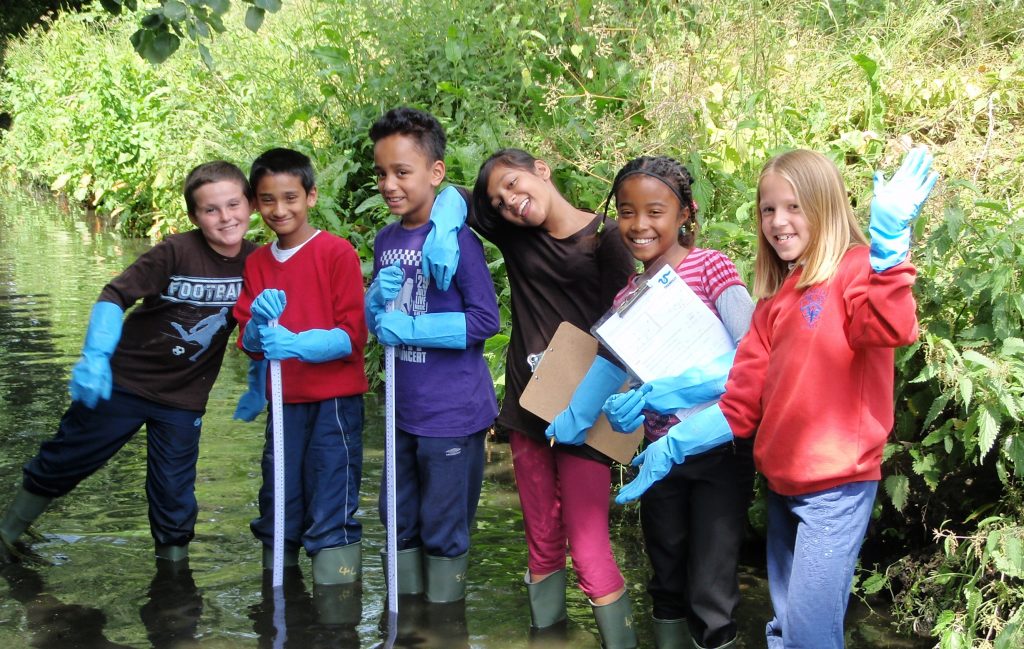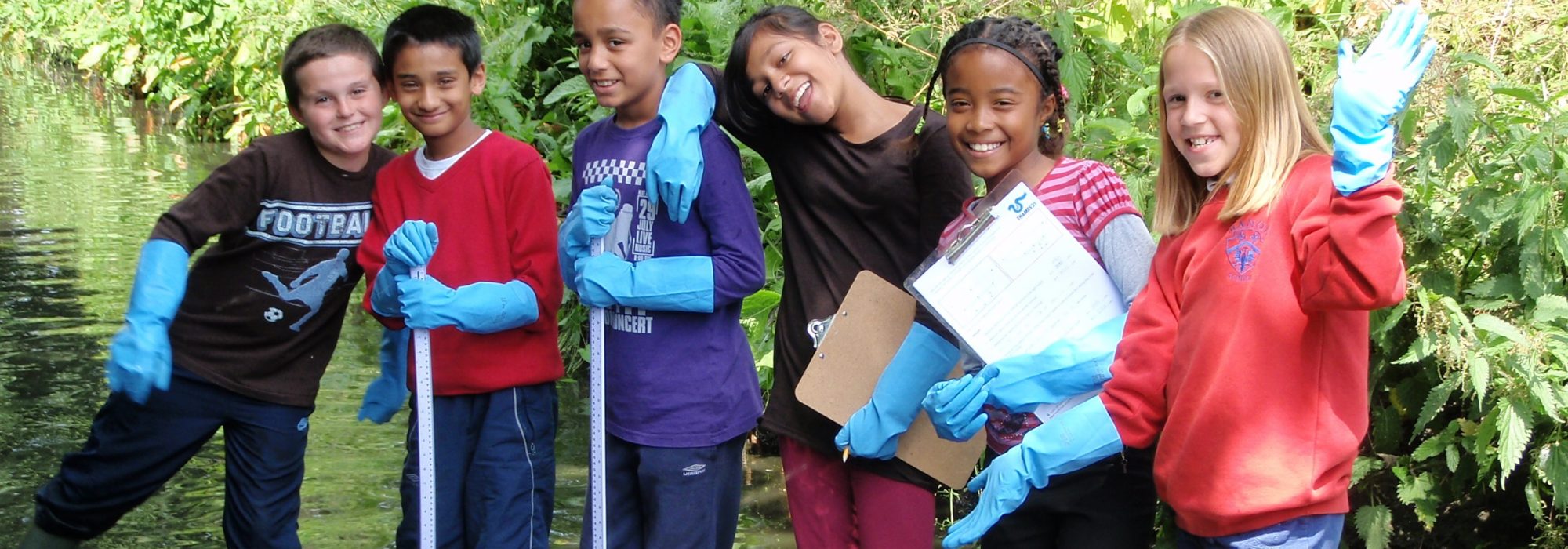Learning outdoors: the hidden benefits
By Education Officer Deb Frankiewiecz

I work at the Welsh Harp Environmental Education Centre, five hectares of woods, stream, ponds and meadows amidst the concrete jungle of Wembley.
The great Outdoor Classroom Day initiative takes place this Thursday 17 May, raising awareness about the multiple benefits of outdoor learning. Here at the Environment Centre we provide outdoor learning experiences every single day.
The Centre exists so that children and adults in this part of west London can experience the outdoors and nature in a way that they wouldn’t normally. For too many people, the park is something that they walk past on the way to work or McDonalds. Three-quarters of UK children now spend less time outside than prison inmates. and fewer than one in 10 children regularly play in wild spaces, according to the National Trust.
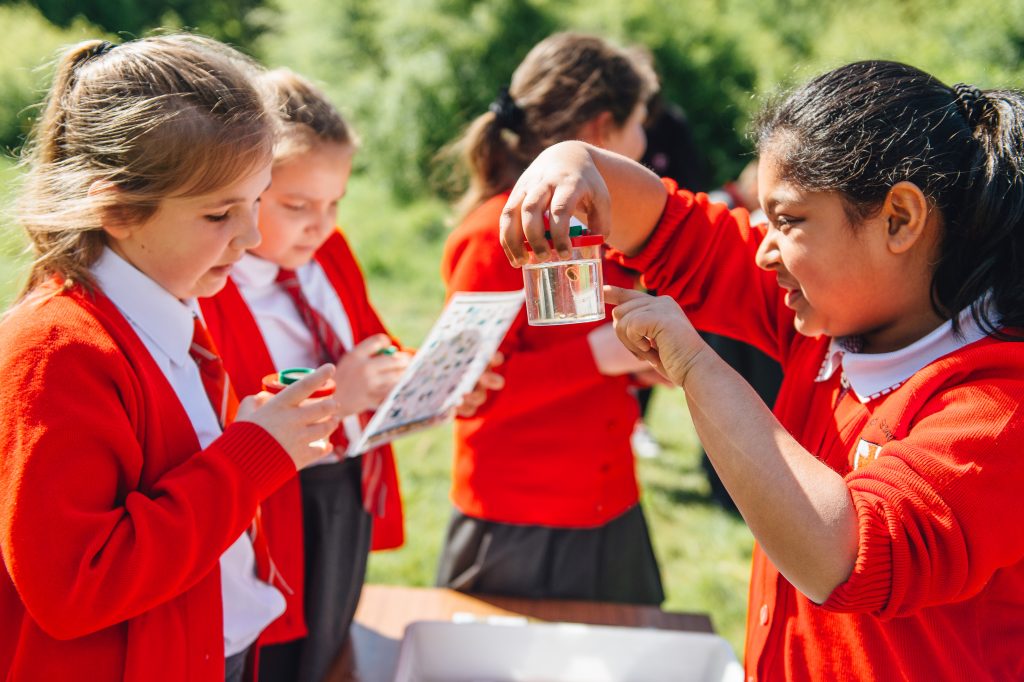
WILD TIME: WHY WE NEED IT
Children and adults need time in nature. Outdoor play and learning has been found to help children focus, improve their social skills, enhance their problem solving abilities and develop their team working skills, as well as boost their creativity and imagination. For adults, time out in nature has been shown to help reduce depression and obesity. as well as improve self-esteem and resilience, among other benefits.
Thames21 took over the Centre in 2016 as part of our mission to help children learn about, and connect with, our waterways. More than 3000 school children enjoy our education programme each year, engaging in fun curriculum-linked learning activities like pond dipping, den-building and mini-beast hunting. Meanwhile, we offer activities for families in the school holidays.
WAYS TO GET CHILDREN OUTDOORS
Outdoor Classroom Day, 17 May, is a great vehicle for fostering closer relationships between children and their environment. It’s also a wake up call for everyone to get outdoors and experience nature, not just school children. The Outdoor Classroom campaign goals are very simple:
- Every child should have 90 minutes outdoor playtime every day
- Every school should be taking lessons outdoors every week
- Every family should aim to make time for outdoor play every day
There are many great ideas for ways to get involved on the Outdoor Classroom Day website. If you’re a parent, encourage your child’s school to get involved.
OTHER WAYS WE HELP CHILDREN GET CLOSE TO RIVERS
Thames21 runs outdoor education sessions across London linked to many of our river projects; from primary school sessions by the Roundmoor Ditch near Slough, to fieldwork skills for North West London secondary schools through our Riverfly Monitoring for Schools project. We also offer Thames foreshore activities as part of our Thames River Watch citizen science programme in East London. Email Education Coordinator Edel Fingleton to find out what’s happening in your area: edel.fingleton@thames21.org.uk
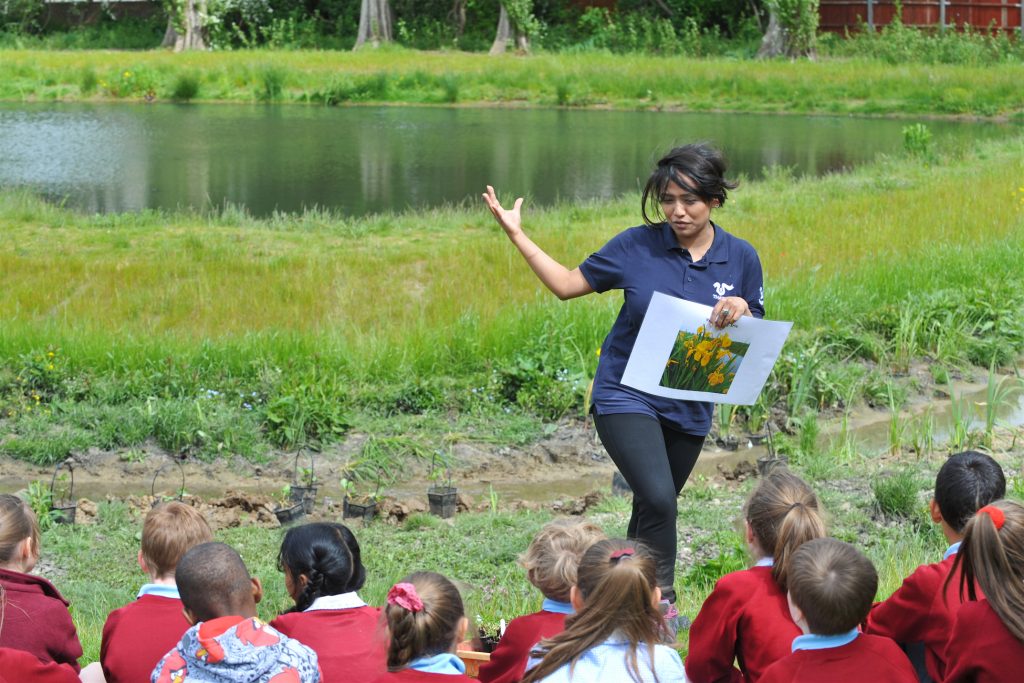
THE MAGIC OF OUTDOOR LEARNING
It was a mild morning last October when we had a shelter building session in the Forest school Zone, part of the woodland. All the children were really excited about going outside to build small houses from logs and twigs. Children who don’t know each other were immediately thrown together, because to make a really good shelter we have to work as a team – there’s no ‘I’ in shelter! Branch by branch, the shelter was formed. Children had to use their communication skills to decide where to put the next branch, watch out for each other so no one got hurt, and ask for help when needed – which many children have not learnt to do. In many outdoor sessions, children can work individually but to build a shelter, everyone has to work together.
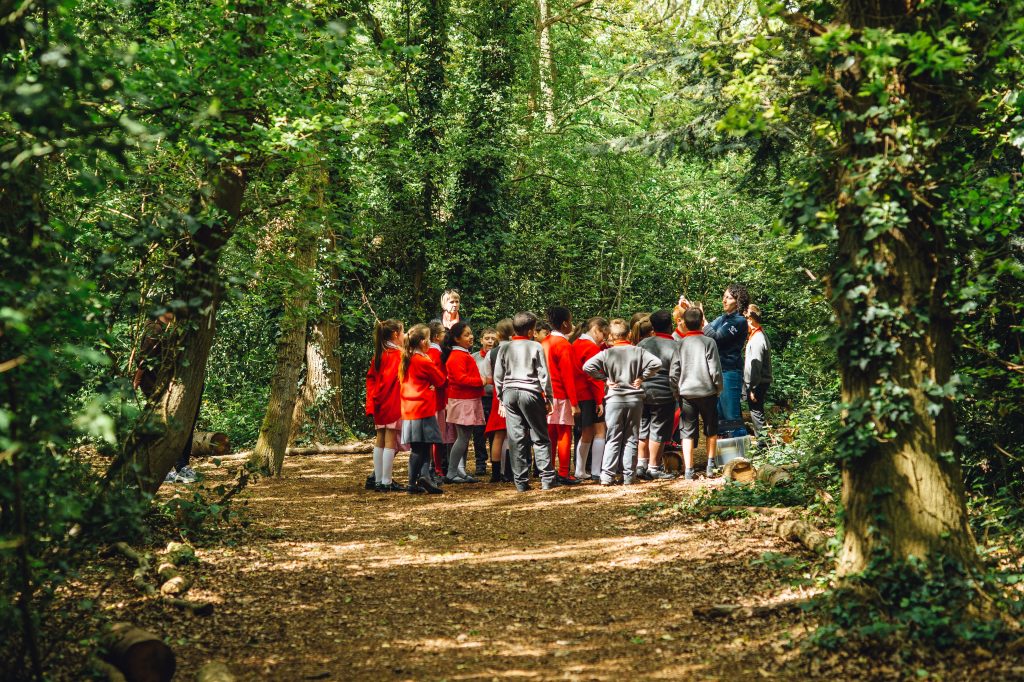
At the end of the session we went back to the classroom and families started to leave. Most of them had already gone when I noticed that two boys from different ethnic backgrounds who had never met before were still sitting together at a table with pencils and papers in front of them. These boys weren’t toddlers so I knew they weren’t simply sitting colouring or drawing, and I went to see what they were doing.
BREAKING DOWN BARRIERS
They were writing something on the paper whilst having a decent discussion about it at the same time. I turned to their mothers, standing next to them. They smiled at me. “They’re writing down each other’s mothers contact details so they can meet up again after they leave today.” I found this really touching, and it reminded me how important it is that families access these kind of experiences. Not only do they provide a way to reconnect to nature, get active and learn; they break down barriers between people!
